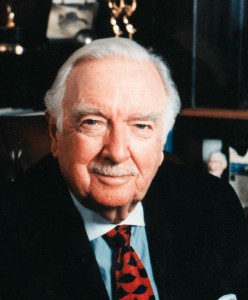After weeks of waiting with baited breath, the special edition of the News of the World Sunday, magazine guest-edited by First Lady Sarah Brown, offered plenty of real-life stories about baby-making but no stolen glimpses of Mrs Brown’s home life with the Prime Minister.
Yesterday’s edition of Fabulous magazine promoted the work of Wellbeing of Women (WoW), a charity aimed at raising awareness of women’s health, of which Brown is a patron.
The edition featured an ‘exclusive interview‘, conducted by Brown, with the wife of celebrity chef Jamie Oliver on her battle with infertility to produce three daughters. Jools Oliver gave birth to the star chef’s third child, Petal, last April, only two days after her husband cooked for the G20 world leaders at Downing Street.
In the Q&A-format interview, Oliver, 34, talked candidly to Brown about the physical and emotional challenges of undergoing fertility treatment. A three-spread feature portrayed other women, who conceived with the help of WoW.
The charity wants to raise £500,000 for a special research programme to help improve women’s reproductive and gynaecological health – £10,000 has already been donated by Fabulous.
Brown is said to have personally chosen the topics which would inspire readers to become involved with WoW. The special edition homed in on the message by featuring fashion and accessory items themed round the colour purple, WoW’s trademark colour, and going as far as including a travel feature on ‘The best baby-making breaks’. TV doctor Hilary Jones covered women’s health issues often considered ‘taboo’.
MediaGuardian deputy editor Vicky Frost, commented through her blog today that there was too much of WoW and too little of Brown’s life:
“I’m not saying she needed to star in the fashion shoot – although that really would have been fabulous – but what about a one-pager about life with her own kids, or healthy dinners she cooks,” Frost said.
The only information the PM’s life gave away in her guest-edited edition was that when it comes to their children’s education, Gordon who plays good cop.
Despite being described as the most accessible No 10 wife and a natural networker, Sarah Brown was a PR supremo before she married Gordon.
On Twitter, under username @SarahBrown10, the First Lady is known to mainly tweet supporting messages for her charities and talk excitedly about her home-grown strawberries – but not a single snippet of information about politics or her family life will slip out.
The News of the World had been tantalising its readers with banners showing Mrs Brown’s photo with the strapline ‘I will wow readers‘ leading up to the guest-edited magazine’s publication. If readers were led into thinking Mrs Brown would make exclusive revelations about her personal life, they were in for a disappointment. As her tweets testify, she prefers to portray her day-to-day as being fairly homely and mundane: “Have emerged from a weekend of gardening, baking cakes and cookies.”
 America has lost a top celebrity anchorman, whose news delivery was so influential, he came to be called ‘the most trusted man in America’.
America has lost a top celebrity anchorman, whose news delivery was so influential, he came to be called ‘the most trusted man in America’.